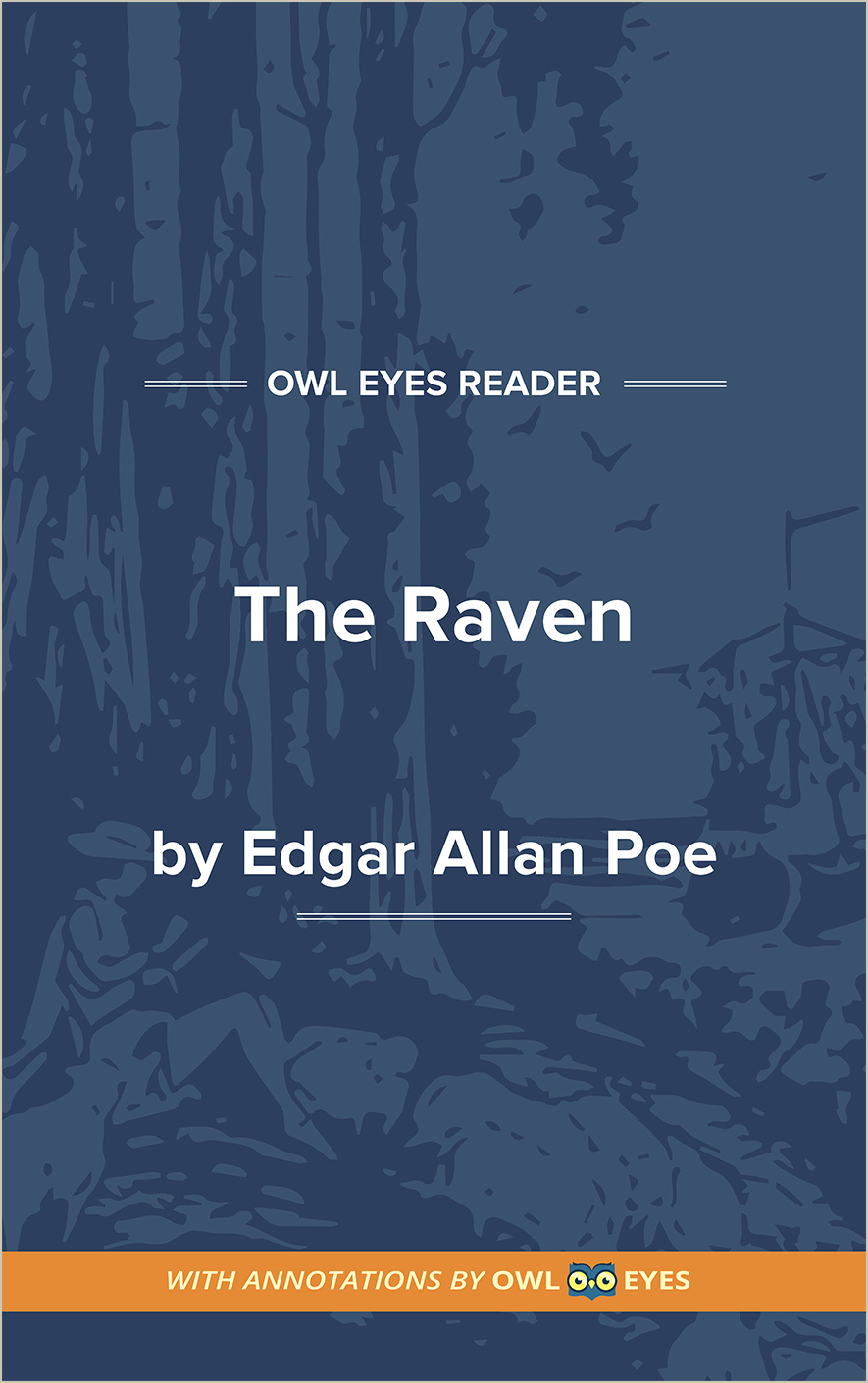Analysis Pages
Vocabulary in The Raven
Vocabulary Examples in The Raven:
The Raven
🔒"Plutonian..." See in text (The Raven)
"Tempter..." See in text (The Raven)
"gloated..." See in text (The Raven)
"dirges..." See in text (The Raven)
"Perched..." See in text (The Raven)
"obeisance..." See in text (The Raven)
"lattice..." See in text (The Raven)
"“Nevermore.”..." See in text (The Raven)
"nepenthe..." See in text (The Raven)
"the distant Aidenn..." See in text (The Raven)
"is there balm in Gilead..." See in text (The Raven)
"Night's Plutonian shore..." See in text (The Raven)
"Perched upon a bust of Pallas..." See in text (The Raven)

